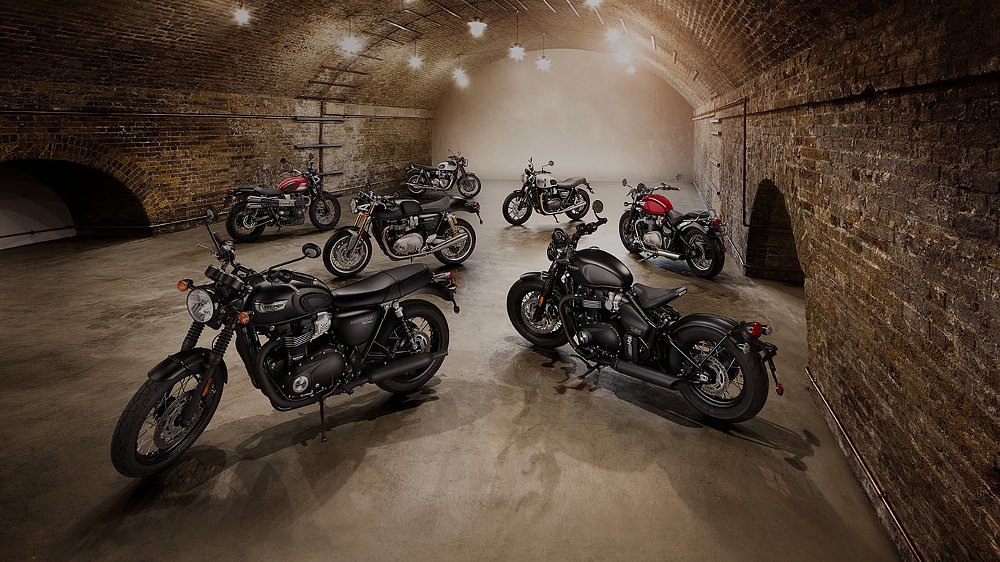A few days ago, I’d have told you the Speed Triple RS was the most aggressive model in Triumph’s current lineup.
Today, that title might go to the new Trident — not for its performance, but for what it delivers for its $7,995 price tag. With that bombshell, Triumph has officially entered the 650-class brawl and they’re coming out swinging with this new twist on an old nameplate. The badge first appeared in 1968, won worldwide acclaim at the Isle of Man TT (winner, 1971 through 1975), then helped reincarnate the Triumph brand under John Bloor in 1990.
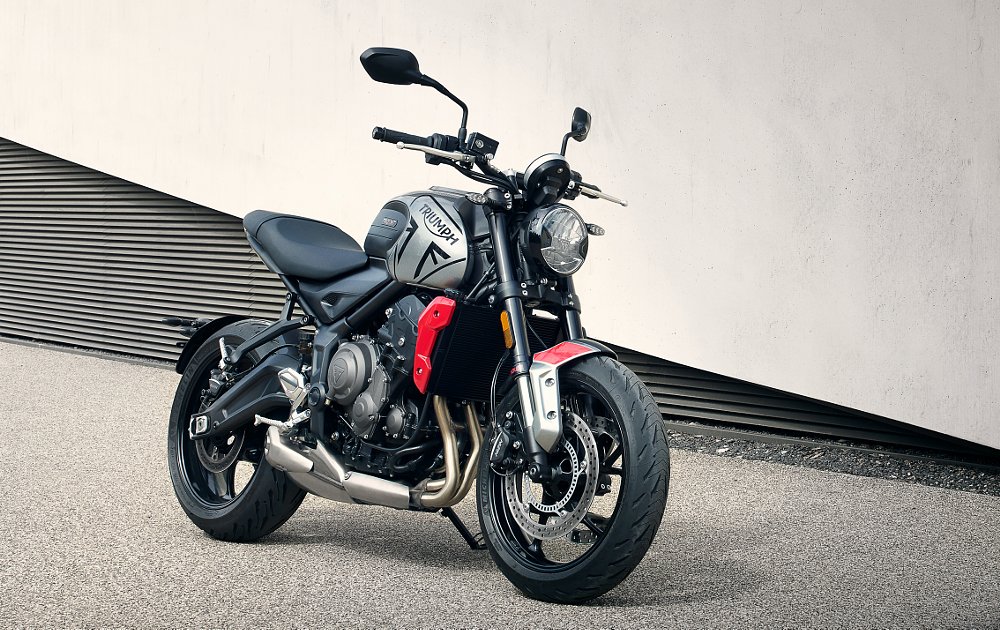
Now the Trident is Triumph’s assault on the popular middleweight naked class which includes the Suzuki SV650, the Yamaha MT-07, the Kawasaki Z650, and the Honda CB650R, though Team Red’s inline four is a bit of an outlier with its weight and price. Triumph’s strategy with the Trident is this: deliver an affordable addition to their Roadster lineup with class-leading features and a triple that outperforms the budget twins without costing or weighing as much as Honda’s four. Give it some classic Triumph DNA, an all-new design, and put it all together in a package that appeals to newbies, experienced riders, and everyone in between. I’ve wanted Triumph to build this bike for years, and Spurgeon was asking for it long before that.
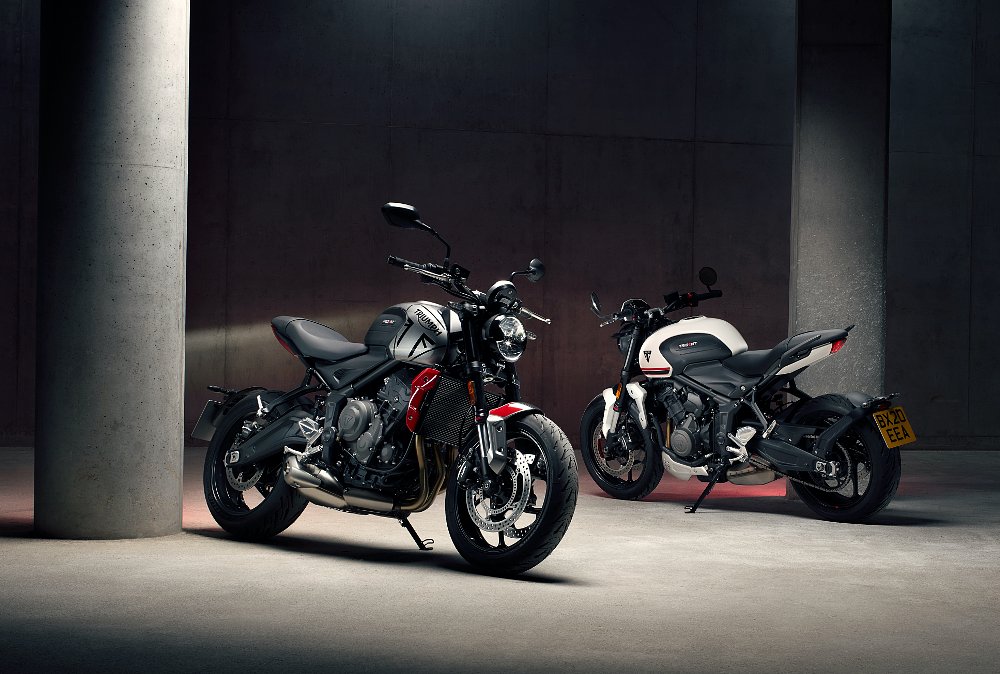
“It had to be a triple,” explained Miles Perkins, Triumph’s Head of Brand Management. Triumph’s entry into the middleweight arena had to communicate Triumph’s unique style and history without pricing their offering out of the class. That’s where the Trident’s 660 cc triple comes in. While its cases are shared with the 675 from the Street Triple S, the engine features plenty of new parts to give it a tractable, all-rounder character in Triumph’s new gateway bike.
“What we wanted with the new Trident 660 was to give the riders in this really exciting middleweight roadster world all of the things they want from their bike, with a genuine set of real advantages that set a new benchmark for choice,” said Chief Product Officer Steve Sargent. “From the competitive price, to the triple power and performance, plus the benefits of class-leading handling and technology, we believe the Trident 660 is a real milestone in the category, and introduces the Triumph brand and the advantages of a triple engine to a whole new generation of riders across the world.” The new engine makes 80 peak horsepower at 10,250 rpm and 47 foot-pounds of torque at 6,250 rpm. 90 percent of peak torque is available "across most of the rev range."
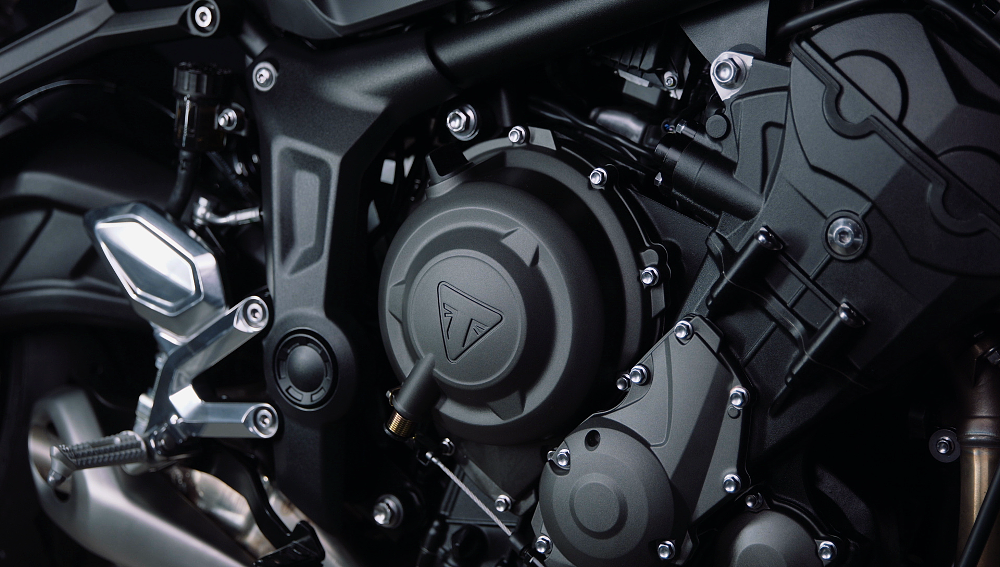
This stripped-back standard weighs just 417 pounds wet and features an all-new steel chassis. Cast 17-inch aluminum wheels will accept most sport and touring rubber available today. The bike packs six speeds, a slip/assist clutch, two ride modes (Road/Rain), throttle by wire, and a friendly rider triangle. Seat height is 31.7 inches. Twin 310 mm discs stop the bike up front with two-pot Nissin calipers; a single Nissin handles the rear. ABS and switchable traction control are also along for the ride.
The fork is a separate-function item from Showa, who also provided the preload-adjustable monoshock rear suspension. Suspension is an oft-critiqued side of the 650 class that Triumph evidently wants to challenge, and this kind of componentry should give them an edge against the likes of the MT, the Z, and the SV. Another advantage will be the Michelin Road 5 tires that come standard. The RevZilla team has tried and approved these tires on a few of our own machines, and we’re glad to see Triumph shipping Tridents with proven rubber.
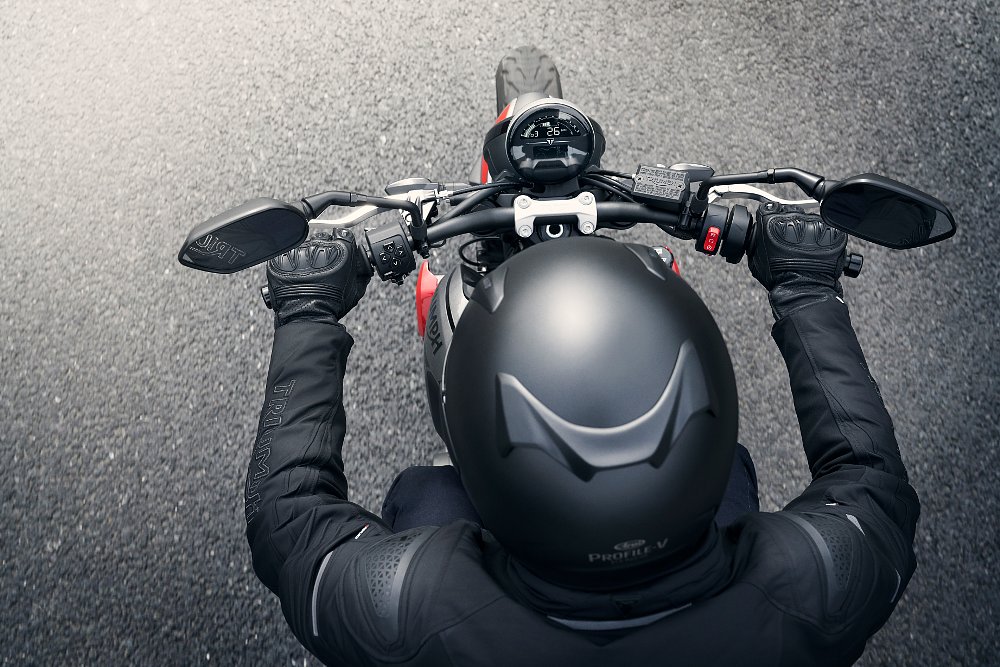
Another advantage of the Trident over its Japanese rivals is the all-new TFT color screen, bordered by what triumph calls a “white-on-black” LCD for maximum visibility. The optional My Triumph Connectivity System allows riders to pair their smartphones with the bike to display navigation and more.
At the center of the Trident’s design is the 3.7-gallon tank with generous knee cutouts. The bike manages to look both retro and modern, and that’s probably by design since Triumph can offer Modern Classics, the Streets, or the Speeds if a Trident rider comes back for an upgrade in the future.
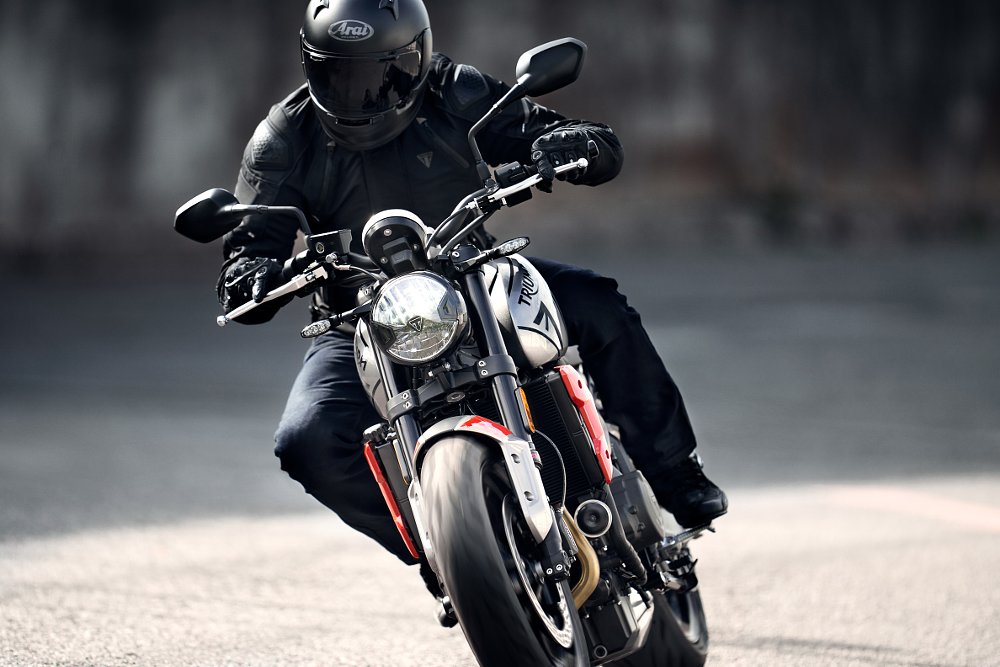
“Over a three-year service timeframe, the Trident requires the lowest level of workshop time in the category, with 8.3 total hours compared to a range of 11 hours to 15.8 hours total required by its closest competitors,” says Triumph. “This information is based on official service activity timings and includes: 600 miles first service, three annual services, fitting a full set of brake pads, a new chain and new sprocket, and one full brake fluid change.”
Service intervals are every 10,000 miles. How’d they get the interval into five-digit territory? Triumph’s reps explained that they employed race-level riders for extensive testing and endurance riding to see what the new engines could handle. They also claimed that the bike was designed to keep service as easy as possible for owners and technicians. The bikes also get Triumph’s two-year, unlimited-mile warranty.
Tridents will arrive in United States dealers starting in late January 2021. Will this $7,995 standard inspire a trip to your local dealer?
|
2021 Triumph Trident
|
|
|---|---|
|
Price (MSRP)
|
$7,995 (base)
|
|
Engine
|
660 cc, liquid-cooled, DOHC triple
|
|
Transmission,
final drive
|
Six-speed, X-ring chain
|
|
Claimed horsepower
|
80 @ 10,250 rpm
|
|
Claimed torque
|
47 foot-pounds @ 6,250 rpm
|
|
Frame
|
Tubular steel perimeter |
|
Front suspension
|
Showa SFF 41 mm fork; 4.72 inches of travel
|
|
Rear suspension
|
Showa RSU monoshock, adjustable for TK preload; 5.26 inches of travel
|
|
Front brake
|
Dual Nissin two-piston calipers, 310 mm discs, ABS
|
|
Rear brake
|
Nissin single caliper, 225 mm disc, ABS
|
|
Rake, trail
|
24.6 degrees, 4.22 inches
|
|
Wheelbase
|
55.2 inches
|
|
Seat height
|
31.7 inches
|
|
Fuel capacity
|
3.7 gallons
|
|
Tires
|
Michelin Road 5, 120/70R17 front, 180/55R17 rear
|
|
Claimed weight
|
417 pounds (wet)
|
|
Available
|
Late January 2021
|
|
Warranty
|
24 months
|
|
More info
|
|











